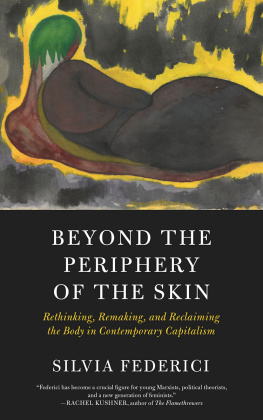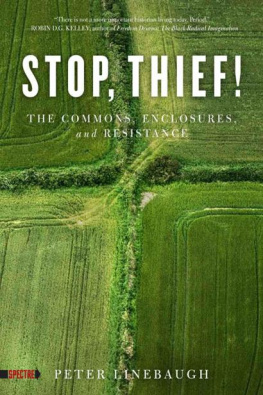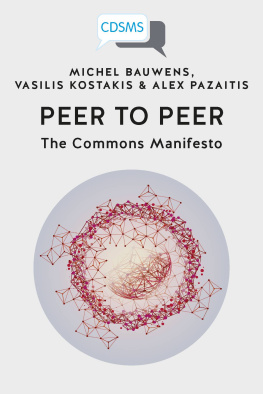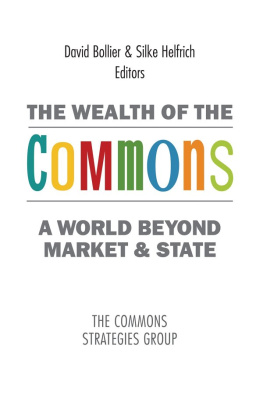


In ancient Greek philosophy, kairos signifies the right time or the moment of transition. We believe that we live in such a transitional period. The most important task of social science in time of transformation is to transform itself into a force of liberation. Kairos, an editorial imprint of the Anthropology and Social Change department housed in the California Institute of Integral Studies, publishes groundbreaking works in critical social sciences, including anthropology, sociology, geography, theory of education, political ecology, political theory, and history.
Series editor: Andrej Grubai
Kairos books:
Practical Utopia: Strategies for a Desirable Society by Michael Albert
In, Against, and Beyond Capitalism: The San Francisco Lectures by John Holloway
Anthropocene or Capitalocene? Nature, History, and the Crisis of Capitalism edited by Jason W. Moore
Birth Work as Care Work: Stories from Activist Birth Communities by Alana Apfel
We Are the Crisis of Capital: A John Holloway Reader by John Holloway
Archive That, Comrade! Left Legacies and the Counter Culture of Remembrance by Phil Cohen
Beyond Crisis: After the Collapse of Institutional Hope in Greece, What? edited by John Holloway, Katerina Nasioka, and Panagiotis Doulos
Re-enchanting the World: Feminism and the Politics of the Commons by Silvia Federici
Occult Features of Anarchism: With Attention to the Conspiracy of Kings and the Conspiracy of the Peoples by Erica Lagalisse
Autonomy Is in Our Hearts: Zapatista Autonomous Government through the Lens of the Tsotsil Language by Dylan Eldredge Fitzwater

Re-enchanting the World: Feminism and the Politics of the Commons
Silvia Federici
2019 PM Press.
All rights reserved. No part of this book may be transmitted by any means without permission in writing from the publisher.
ISBN: 9781629635699
Library of Congress Control Number: 2018931520
Cover by John Yates / www.stealworks.com
Interior design by briandesign
Cover painting by Elizabeth Downer
Frontispiece art by Erik Ruin
10 9 8 7 6 5 4 3 2 1
PM Press
PO Box 23912
Oakland, CA 94623
www.pmpress.org
Autonomedia
PO Box 568 Williamsburg Station
Brooklyn, NY 11211-0568 USA
www.autonomedia.org
This edition first published in Canada in 2018 by Between the Lines
401 Richmond Street West, Studio 281, Toronto, Ontario, M5V 3A8, Canada
18007187201
www.btlbooks.com
All rights reserved. No part of this publication may be photocopied, reproduced, stored in a retrieval system, or transmitted in any form or by any means, electronic, mechanical, recording, or otherwise, without the written permission of the publisher or (for photocopying in Canada only) Access Copyright www.accesscopyright.ca.
Canadian cataloguing information is available from Library and Archives Canada.
ISBN 9781771133777 Between the Lines paperback
ISBN 9781771133784 Between the Lines epub
ISBN 9781771133791 Between the Lines pdf
Printed in the USA by the Employee Owners of Thomson-Shore in Dexter, Michigan.
www.thomsonshore.com
Contents
Acknowledgments
This book is thoroughly indebted to discussions I have had with dozens of compaer@s in different parts of the world. Here I will only mention some of the women and men who, over the years, have inspired me with their research, their activism, and their vision of a different world, translated into a practice of mutual support and friendship. My deepest gratitude goes to George Caffentzis, with whom I have collaborated for many years, rethinking the history of the commons and reflecting on the political principles involved, including as part of the Midnight Notes Collective; Hans Widmer (alias P.M.), who was one of the first to introduce me to the politics of the commons, with his writings, his imaginative paintings documenting the enclosure of urban space in New York, and his collective housing experiments in Zurich, from Carthago to Kraftwerk; Nick Faraclas, whose study of the African and Papua New Guinean pidgins brought to light for me the commoning dimension of language; Chris Carlsson, who, in the face of a triumphant neoliberalism, dared to say that the commons are not a utopia and put that into practice retaking the streets through Critical Mass; Kevin Van Meter, Craig, and the Team Colors Collective, with whom, in New York at ABC No Rio, we began a long discussion on commoning and self-reproducing movements; Maria Mies who taught us that at the heart of the commons is a profound sense of responsibility toward other people and the land, and that commoning is reuniting those parts of our social life that capitalism has divided; Peter Linebaugh, lifetime brother and comrade, who has made commoning and the lives of those who have struggled to build communitarian worlds the main theme of his historical workto him I owe my understanding of history as a common; Massimo De Angelis, who has not only written classic texts on the commons but has put commoning into practice in a village on the Italian Appenine Mountains (Massimo lives a daily life that is outside of capitalism, something which in his view is recreated through our daily acts of individual and collective refusal); the Unitierra Center in Oaxaca and its founder and promoter Gustavo Esteva, who even in the darkest moment of our recent history has never tired of asserting that the commons are already all around us; Raquel Gutirrez Aguilar, whose powerful account of the rhythms of Pachakuti in the water wars in Bolivia has brought to life the insurgent power of communitarian forms of reproduction; Mina Lorena Navarro, who has shown us that the preservation and recreation of collective memory is a key condition for the defense of the commons; Gladys Tzul Tzul, who has given us an insightful description of how in communal regimes politics emanates from the reproduction of daily life and made it possible for me to better understand the meaning of communitarian relations. I also owe to Gladys the possibility of meetings recently in Guatemala with women from different indigenous organizations. My gratitude also to Beatriz Garcia and Ana Mndez de Ands, who have introduced me to the Quinzeme and organized my journey through the Spanish villages that had seen the infamous war on the commons that was the witch hunt; Joen Vedel, who has introduced me to Christiania and other commons in Copenhagen. My gratitude also to Lucia Linsalata, Vernica Gago, Natalia Quiroga, Betty Ruth Lozano, Marina Sitrin, Richard Pithouse, Caitlin Manning, Iain Boal, Mercedes Oliveras Bustamante, Rosaluz Perez Espinosa, Ral Zibechi, Mariana Menendez, Noel Sosa, Yvonne Yanez, Jules Falquet, Mariarosa Dalla Costa, Ariel Salleh, and, not least, Elizabeth Downer, whose powerful paintings provide a visual text of the ongoing reclamation of communal spaces and activities on the American continent. Thanks to Josh MacPhee and to Erik Ruin of Justseeds for his painting of the Maypole dance Reclaiming the Commons. I also want to remember the late Rodolfo Morales, one of the most important twentieth-century Mexican artists, who dedicated his life to celebrate womens community building capacity, representing their bodies and activities as the elements that hold the community together.
Next page














